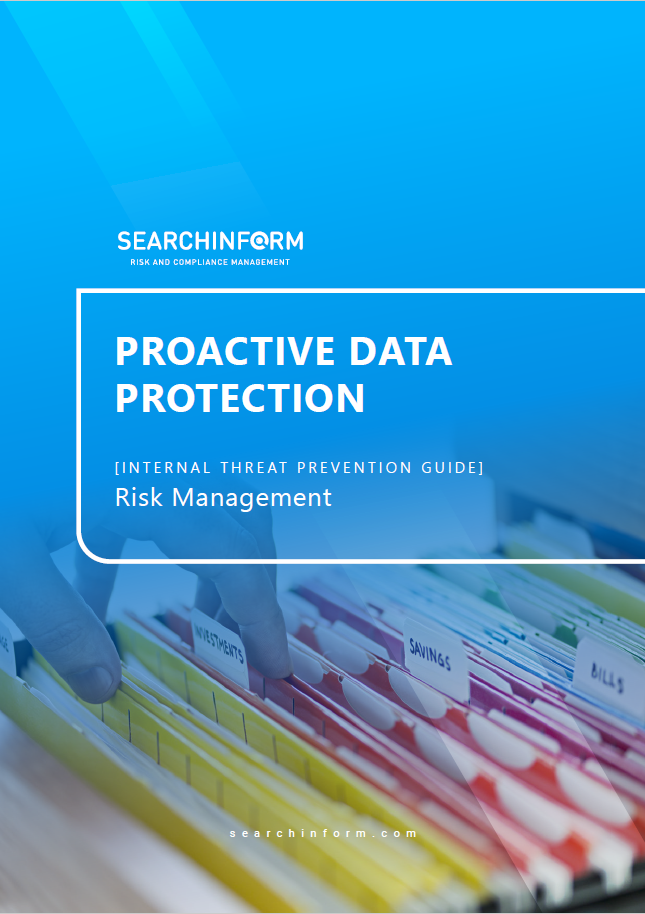Navigating HIPAA Covered Entities: Responsibilities and Compliance
Introduction to HIPAA Covered Entities
Definition and Scope
HIPAA, the Health Insurance Portability and Accountability Act, was enacted in 1996 to safeguard protected health information (PHI) and ensure its confidentiality, integrity, and availability. HIPAA is divided into several titles, with Title II specifically addressing Administrative Simplification, which includes provisions for privacy and security of health information.
Covered Entities under HIPAA are defined as organizations or individuals who transmit health information electronically, in connection with certain transactions, as well as healthcare providers, health plans, and healthcare clearinghouses. Let's delve deeper into each component:
- Healthcare Providers: These include doctors, clinics, hospitals, nursing homes, pharmacies, and other entities that provide medical, dental, or other health-related services.
- Health Plans: Health insurance companies, HMOs, company health plans, Medicare, and Medicaid are all considered health plans under HIPAA.
- Healthcare Clearinghouses: These are entities that process nonstandard health information they receive from another entity into a standard format, or vice versa. This includes billing services, repricing companies, and community health management information systems (CHMIS).
The scope of HIPAA extends to any entity that handles or processes protected health information (PHI) in any form—electronic, paper, or oral communication. PHI includes any information, demographic data, or other identifiers that can be used to identify a patient.
Its discovery entails:
Importance of Compliance
The importance of compliance with HIPAA regulations cannot be overstated. Failure to comply can lead to severe consequences, including hefty fines and legal penalties, damage to reputation, loss of trust from patients, and potential loss of business. Compliance ensures the confidentiality, integrity, and availability of PHI, which are crucial for maintaining trust between patients and healthcare providers.
By adhering to HIPAA regulations, covered entities demonstrate their commitment to protecting patient privacy and confidentiality, fostering trust in the healthcare system, and avoiding the potential consequences of non-compliance. This includes implementing safeguards such as secure electronic systems, access controls, staff training, and policies and procedures for handling PHI. Compliance with HIPAA not only protects patients' rights but also promotes efficient healthcare operations and data security.
HIPAA Compliance Requirements for Covered Entities
HIPAA compliance requirements for covered entities are comprehensive and encompass various aspects of protecting patient information. Here's an overview of some key requirements:
Privacy Rule Compliance: The HIPAA Privacy Rule establishes national standards to protect individuals' medical records and other personal health information. Covered entities must ensure they have policies and procedures in place to protect the privacy of patients' health information. This includes obtaining patient consent for disclosing PHI, providing patients with notice of their privacy rights, and limiting the use and disclosure of PHI to the minimum necessary for the intended purpose.
Security Rule Compliance: The HIPAA Security Rule sets standards for the security of electronic protected health information (ePHI). Covered entities must implement administrative, physical, and technical safeguards to ensure the confidentiality, integrity, and availability of ePHI. This includes measures such as access controls, encryption, audit controls, and employee training on security practices.
Breach Notification Rule Compliance: The HIPAA Breach Notification Rule requires covered entities to notify affected individuals, the Secretary of Health and Human Services, and, in some cases, the media, in the event of a breach of unsecured PHI. Covered entities must have procedures in place to promptly identify and respond to breaches, including conducting a risk assessment to determine the likelihood of harm to individuals and taking appropriate steps to mitigate the breach.
HITECH Act Compliance: The Health Information Technology for Economic and Clinical Health (HITECH) Act, enacted as part of the American Recovery and Reinvestment Act of 2009, strengthened HIPAA's privacy and security provisions. Covered entities must comply with additional requirements under the HITECH Act, such as expanding the scope of HIPAA to include business associates and implementing stricter penalties for non-compliance.
Business Associate Agreements (BAAs): Covered entities must enter into written agreements with their business associates, such as vendors or contractors who have access to PHI, to ensure that these entities also comply with HIPAA regulations. BAAs outline the responsibilities of the business associate regarding the protection and use of PHI.

Training and Awareness: Covered entities must provide regular training to employees on HIPAA compliance requirements, including privacy and security policies and procedures. Employees should be aware of their role in safeguarding PHI and understand the potential consequences of non-compliance.
Audits and Monitoring: Covered entities should conduct regular audits and monitoring activities to assess compliance with HIPAA regulations and identify any areas for improvement. This includes reviewing access logs, conducting risk assessments, and responding promptly to any potential security incidents or breaches.
HIPAA compliance is an ongoing process that requires commitment from covered entities to protect patients' privacy and security while ensuring the efficient and effective delivery of healthcare services. Compliance with HIPAA regulations not only helps to safeguard patient information but also demonstrates an organization's commitment to ethical and responsible healthcare practices.
Responsibilities of HIPAA Covered Entities
HIPAA covered entities have significant responsibilities to ensure the protection and privacy of patients' health information. Here are some key responsibilities:
Protecting Patient Information: Covered entities must safeguard protected health information (PHI) from unauthorized access, use, or disclosure. This includes implementing appropriate administrative, physical, and technical safeguards to ensure the confidentiality, integrity, and availability of PHI.
Compliance with HIPAA Regulations: Covered entities must comply with the HIPAA Privacy Rule, Security Rule, and Breach Notification Rule, as well as any other applicable HIPAA requirements. This includes establishing and maintaining policies and procedures to address privacy and security concerns, training employees on HIPAA compliance, and conducting regular audits and assessments of compliance efforts.
Business Associate Management: Covered entities must enter into written agreements, known as business associate agreements (BAAs), with vendors, contractors, or other entities that have access to PHI. These agreements outline the responsibilities of the business associates regarding the protection and use of PHI and ensure compliance with HIPAA regulations.
Patient Rights: Covered entities must respect and uphold patients' rights regarding their health information. This includes providing patients with access to their medical records, allowing them to request amendments to their records if necessary, and providing them with a notice of privacy practices that explains how their information will be used and disclosed.
Security Incident Response: Covered entities must have procedures in place to respond to security incidents and breaches involving PHI. This includes conducting risk assessments to determine the impact of the incident, notifying affected individuals, the Secretary of Health and Human Services, and, in some cases, the media, as required by the HIPAA Breach Notification Rule.
Training and Awareness: Covered entities are responsible for ensuring that their employees receive regular training on HIPAA compliance, including privacy and security policies and procedures. Employees should be aware of their role in protecting patient information and understand the potential consequences of non-compliance.
Continuous Improvement: Covered entities should continuously monitor and evaluate their HIPAA compliance efforts and make adjustments as needed to address any identified deficiencies or emerging threats. This may include updating policies and procedures, implementing new security measures, or providing additional training to employees.
HIPAA covered entities play a critical role in maintaining the privacy and security of patients' health information and are responsible for ensuring compliance with HIPAA regulations to protect patient rights and trust in the healthcare system.
Leveraging SearchInform Solutions for HIPAA Covered Entities
SearchInform solutions offer several benefits for HIPAA covered entities in managing their compliance and security requirements:
Efficient Data Management: SearchInform solutions provide powerful tools for indexing, searching, and retrieving sensitive information stored across various data repositories within the covered entity's infrastructure. This enables efficient management of patient records, administrative documents, and other critical data while ensuring compliance with HIPAA regulations regarding data access and retention.
Advanced Data Protection: SearchInform solutions offer advanced data protection features such as access controls, encryption, and data loss prevention (DLP) capabilities. These features help covered entities safeguard sensitive patient information against unauthorized access, data breaches, and insider threats, thereby enhancing overall data security and compliance with HIPAA requirements.
Real-time Monitoring and Alerting: SearchInform solutions enable real-time monitoring of data access and usage patterns, allowing covered entities to detect and respond promptly to suspicious activities or potential security incidents. Automated alerting mechanisms notify administrators of unauthorized access attempts, data breaches, or policy violations, facilitating timely intervention and mitigating risks to patient privacy and confidentiality.
Compliance Reporting and Auditing: SearchInform solutions offer robust reporting and auditing capabilities, allowing covered entities to generate compliance reports, track user activities, and demonstrate adherence to HIPAA regulations during audits or regulatory inspections. Detailed audit trails provide transparency into data access and usage, helping covered entities maintain compliance with HIPAA's stringent requirements for data protection and privacy.
Streamlined Incident Response: In the event of a security incident or data breach, SearchInform solutions facilitate rapid incident response and forensic investigation by providing comprehensive visibility into the affected data, user interactions, and potential security vulnerabilities. This enables covered entities to contain the incident, mitigate its impact, and fulfill their obligations under the HIPAA Breach Notification Rule by promptly notifying affected individuals and regulatory authorities.
Enhanced Operational Efficiency: By streamlining data management, improving security controls, and automating compliance processes, SearchInform solutions contribute to enhanced operational efficiency for covered entities. Reduced manual effort in data handling, increased visibility into compliance status, and proactive risk mitigation measures enable covered entities to focus on delivering high-quality patient care while maintaining regulatory compliance with HIPAA standards.
SearchInform solutions empower HIPAA covered entities with comprehensive data management, security, and compliance capabilities, enabling them to protect sensitive patient information, mitigate risks, and uphold regulatory requirements effectively. These benefits contribute to strengthening data security, enhancing operational efficiency, and maintaining trust and confidence among patients and stakeholders in the healthcare ecosystem.
Take the next step towards secure and compliant healthcare data management with Searchinform Contact us today to learn how we can safeguard your patients' information and enhance operational efficiency.
Extend the range of addressed challenges with minimum effort
Company news
SearchInform uses four types of cookies as described below. You can decide which categories of cookies you wish to accept to improve your experience on our website. To learn more about the cookies we use on our site, please read our Cookie Policy.
Necessary Cookies
Always active. These cookies are essential to our website working effectively.
Cookies does not collect personal information. You can disable the cookie files
record
on the Internet Settings tab in your browser.
Functional Cookies
These cookies allow SearchInform to provide enhanced functionality and personalization, such as remembering the language you choose to interact with the website.
Performance Cookies
These cookies enable SearchInform to understand what information is the most valuable to you, so we can improve our services and website.
Third-party Cookies
These cookies are created by other resources to allow our website to embed content from other websites, for example, images, ads, and text.
Please enable Functional Cookies
You have disabled the Functional Cookies.
To complete the form and get in touch with us, you need to enable Functional Cookies.
Otherwise the form cannot be sent to us.

Subscribe to our newsletter and receive a bright and useful tutorial Explaining Information Security in 4 steps!

Subscribe to our newsletter and receive case studies in comics!







